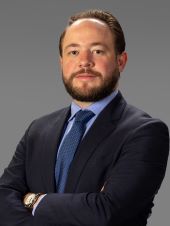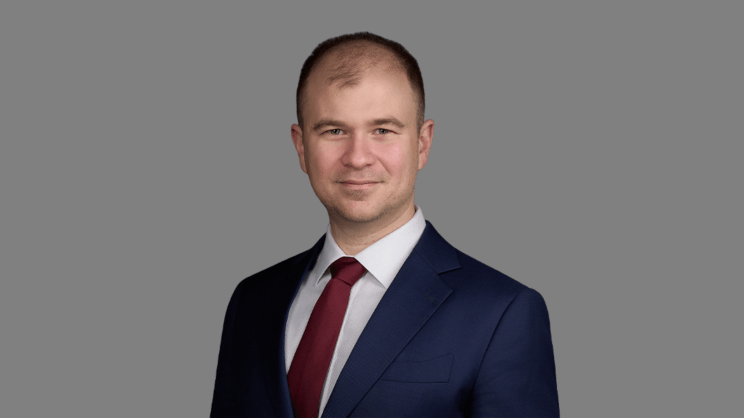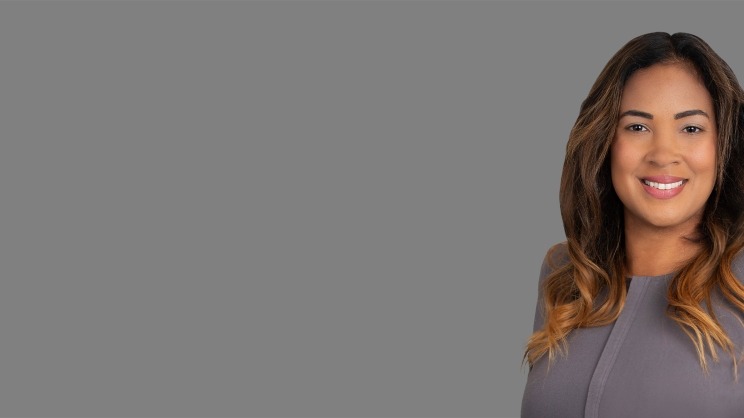Welcome Back Spotlight: Juan Pablo Rodriguez

How a Director's Return to A&M in His Home Country Satisfied His Desire for Challenging Work and Return to A&M's Core Values
Juan Pablo Rodriguez is a Director with Alvarez & Marsal’s Latin America practice in Mexico City, Mexico. He earned a bachelor’s degree in chemical engineering from the Universidad Iberoamericana, Ciudad de México.
In this Q&A, Juan shares his practical approach to business transformation, focusing on teamwork, technical know-how and effective communication. Drawing on his diverse experiences in financial analysis and global teamwork, he reveals that blending technical precision with a people-first mindset is essential for overcoming complex restructuring challenges. Juan relocated to the Netherlands to serve as CFO of Van Amersfoot Racing and explore his passion for sports, travel, and wine culture. These experiences have enriched his perspective as he returns to his home country and to Alvarez & Marsal.
Communication and Problem-Solving Have Major Impact in Business Transformation
Reflecting on your career journey, which skills have been most instrumental to your success?
I believe everything begins with communication. When I clearly understand the goals and objectives of individuals, teams, and organizations — including those of our clients — and effectively share my own, it really helps focus our efforts and brings success.
I also consider problem-solving a key skill. My approach is very goal-oriented: I start by identifying the issues or bottlenecks that are holding us back. Then I ask, "What do we need to do to overcome this challenge?"
Lastly, I value the balance between different skills. It's not enough to be technically brilliant if you can't convey your insights clearly, nor is a compelling presentation effective without solid substance. Striking the right balance between technical expertise and clear communication is something I always strive to achieve.
The Imperative of Change and Challenging the Status Quo
How has your experience in financial analysis and business transformation shaped your approach to restructuring projects at A&M, particularly in a hybrid work environment?
Our restructuring approach starts with a deep financial analysis of our client’s situation — especially in insolvency cases where financial challenges are at the forefront — even if operational issues also play a role. When a company needs restructuring, it’s a clear sign that change is required, whether driven by internal or external factors or both. This is where business transformation steps in: We evaluate every aspect — operational, strategic, cultural — and challenge the status quo while relying on our clients’ expertise to guide practical solutions.
Additionally, remote work has introduced new complexities. While many tasks can be managed virtually, face-to-face interactions remain irreplaceable, especially when building new teams or collaborating with unfamiliar partners. In our field, the hybrid model is ideal, as it blends the efficiency of remote work with the critical personal connections that drive effective change.
How did living abroad and navigating industry challenges shape your professional skills?
Living away from friends and family, especially in a tightly knit culture like Mexico’s, comes with a steep learning curve. Combining that with the complexities of finance in sports and adapting to a vastly different culture brought both rewarding and difficult experiences. It pushed me to reflect deeply on myself, as my strengths and weaknesses were magnified in ways I hadn’t anticipated.
Ultimately, the most valuable lessons I gained weren’t technical but personal. I learned how to navigate different personalities and handle challenging situations more effectively. Managing these hurdles without the strong support system I had back home was mentally demanding, but it also helped me better understand the signals our minds give us. Staying motivated, focused, and performing at my best despite these challenges was an incredibly enriching experience.
Experience in Multiple Roles Brings Practical Solutions to the Table
With a background spanning financial roles and M&A advisory, how do you integrate your CFO experience into delivering impactful business transformation solutions for clients at A&M?
A common complaint I have received about consultants is that we sometimes live in an ideal world, proposing solutions that are nearly impossible to implement in the real world. Having had the opportunity to work in different roles — both interim and full time in financial departments — has helped me understand the challenges and intricacies our clients usually face and enabling me to bring more practical, real solutions to the issues. Additionally, listening to their feedback and considering what has been tried before has been tremendously helpful in delivering solutions that can be designed and implemented for better results.
Deciding to Return to A&M at an Important Time for the Mexico Office
What key factors influenced your decision to return to the firm, and what excites you about this new chapter?
The first part was a bit personal — my wife and I decided to return to Mexico after spending a couple of years in the Netherlands. While the Netherlands is a great and beautiful country, our roots are hard to ignore, and we felt it was time to start a family back home.
The second part is closely tied to the firm's values. I really enjoy what we do and working with the team we've built in the Mexico City office. We tackle solutions for very complex situations, which is both challenging and a great opportunity for growth, learning and, of course, fun.
This new chapter is truly exciting for many reasons. First, I believe the firm in Mexico is at a critical inflection point — we're growing rapidly, and it's thrilling to be part of that journey. On a personal note, I feel I'm at a stage in my career where I can consolidate the skills I've been working with and catapult myself to the next level, whether it be in internal and external networking, leadership, or deepening my technical expertise and industry knowledge.
Based on your experience, what advice would you offer to professionals considering returning to a former employer?
I guess every situation is different, but I would say don’t be afraid of returning. While some may view returning as a failure, it doesn’t have to be that way. It takes courage to say, "I was happy where I was, and this is the best place for me." In short, if your experience was positive and you believe returning will help you achieve your goals and grow, never close that door.
Personal and Professional Mentors Have Led the Way
Who have been your most influential mentors, and what important lessons have you learned from them?
On the personal side, my biggest mentor was my grandfather. He always pushed me to be the best I could be, insisting that just being good is not enough, and he encouraged me to pursue my passions and keep moving forward.
On the professional side, I have been blessed with many great mentors during my time at A&M. Floris Iking, Cristina Gomez-Clark, Jose Golffier, Roman Alvarez and Sergio Meneses — just to name a few — are Managing Directors who, in various ways and roles, have greatly contributed to my development. It’s hard to name everyone who has been influential, but every day at A&M, and every relationship here, has fostered significant growth—both personally and professionally.
A Love for Travel, Culture, Sports — And Their Relationship to Business
How has your passion for sports like the NFL, NHL and motorsports influenced your leadership style?
I have always been a huge sports fan. I practiced team sports for a long time and still follow sports closely. If it were possible, I’d follow almost every league in every sport. Sports are a great and very visible way to see how many things in life operate, especially within teams.
One of the main aspects of team sports is that no individual is completely irreplaceable, yet every member is essential to achieving the common goal. For example, many view motorsports as an individual sport, but behind every car is a team of engineers, mechanics, managers and more. If one piece fails, even Max Verstappen in the car won’t be able to deliver. This same principle applies in professional settings: We are all equally important to the objective. Some of us ensure the wheels are tight, some keep the engine running well and some get to be the driver. Identifying who is doing what, understanding each person’s strengths, and trusting that everyone is doing their part (with some checks) helps deliver a winning team.
How has your road trip through Europe shaped your approach to working with global teams?
It was very interesting to learn about the different countries we visited. The diversity in culture, history and ways of thinking we experienced was truly enriching. I had already had the chance, in previous engagements and in the Netherlands, to work with people from various backgrounds and nationalities, but traveling and seeing their struggles, traditions, and the way different areas and cities live has helped me become more sensitive to the differences we all face and how these experiences shape us as professionals.
We visited the more agricultural part of France, northern and central Italy, a few countries in the Balkans, and Germany. Although the area wasn’t as large as what we are used to covering in North America, the diversity and differences in economies and history provided a lot of perspective.




